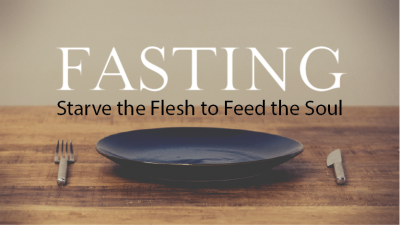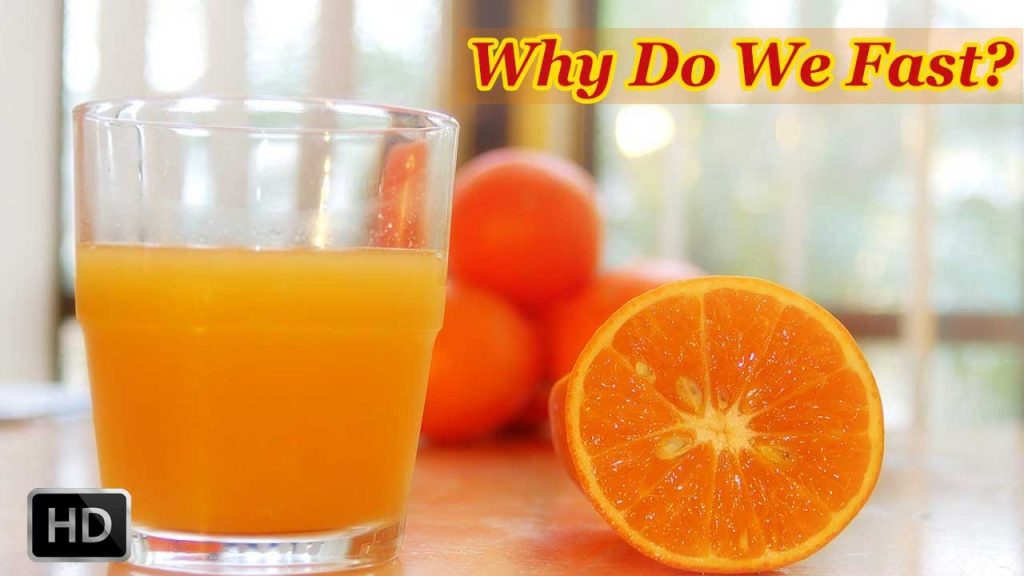The attitude of medical science towards fasting
The cell is the basic functional unit of the organism. Within each cell there are organelles – parts of the cell – a diminutive form of the word organ. The most important organelle when it comes to the energy we need is the mitochondra. It represents the “energy center” without which it would not be possible to take what food gives us. If we did not have mitochondria, all cellular functions would cease, thus our life would not be possible. The mitochondria are also the “lungs” of the cell and with the help of oxygen they burn glucose giving energy to the cells. Just as fire requires the presence of oxygen to burn the most common wood, so does the need for oxygen to burn this small “power plant”. Eating bad foods (industrial sugar, fatty foods, lots of meat, cheese) releases a lot of radicals inside the mitochondria, then stress leads to errors in the DNA level of the mitochondria because they are sensitive to stress, resulting in aging (say, pigment loss hair, let’s sit down) and eventually the DNA strand builds up to death. Imagine an organ that is constantly working without the rest that we give it. It would be magnified, and its working effect would become weaker. It would have tired cells, and the chance of an error would be greater.
Temporary fasting puts us in a good position to literally devote ourselves to the body. It helps the organism to change the parts that are defective or worn out by cutting off energy for worn out cells and making room for new and prepared ones.

What are the benefits of food restrictions?
- There is a fall in blood glucose (sugar) and the consumption of glycogen reserves (glucose reserves) from the liver and the muscle into which sugar is deposited when they are inactive.
- The amount of insulin is reduced and thus fasting prevents the risk of type II diabetes. Insulin is a hormone that puts sugar inside the cell so that the sugar does not circulate free and thus damages the body, diabetes is an example of this, and people who are obese fall into a state of insulin resistance which means that although it offers glucose to the cell it is unacceptable it does not allow insulin to enter, so the sugar floats freely outside the cell and the pancreas adds more insulin, thus pulling in more sugar, which is a very tragic situation. Cells are able to see glucose react with “I can’t go anymore, I’m sick”.
- Metabolism is directed towards the consumption of fat that is deposited when we consume more food than we need. Said insulin leads to the deposition of fat in the body and cultivation because it prioritizes the sugar that needs to be distributed to cells, a priority principle. When there is not a large amount of insulin fat can be consumed. Fats are a good reservoir for the deposition of poisons, so they tell us to drink milk when there is poisoning because milk contains fats and so absorbs poisons. When we fast, we consume the fats that made us fuller, and with them we release the buildup of poison. The body gains energy from the fat by burning it after it consumes all glucose reserves.
- The organism devotes itself to itself, replacing the worn out cells and parts of the cells with new ones, recognizes the needs of the organism and mistakes, does not miss the opportunity for renewal. New immune cells are essential, which boosts the immune response, stem cells awaken and new cells leukocyte immunity are given. Then our body has a renewed army that does not allow all those immune system attackers to go unnoticed. Every day at least one cell develops an inappropriate appearance, which if multiplied would result in cancer, but if we have a strong immune system this abnormality is destroyed by the abnormal cell losing its “identity card” (a histocompatible major complex located on the cell surface) and thus shows that it is compatible with the organism to which it belongs) and the “cop” of the immune cell notices it and destroys the cancer cell or any intruder from which we defend. In this way, our life is certainly better, if not longer when there is someone to clean the intruders. In some clinics, fasting is applied after difficult therapies (chemotherapy) that have adverse effects to boost the immune system and the patient’s general condition.
- Our organs, apart from the brain, are reduced in size during fasting, which means they rest, mitochondria burn energy more efficiently. There are more antioxidants inside the cells, which are enzymes that aim to find and neutralize free radicals in the cell. Another name for the fasting is a surgery without a knife.
- There is a fall in blood glucose (sugar) and the consumption of glycogen reserves (glucose reserves) from the liver and the muscle into which sugar is deposited when they are inactive.
- The amount of insulin is reduced and thus fasting prevents the risk of type II diabetes. Insulin is a hormone that puts sugar inside the cell so that the sugar does not circulate free and thus damages the body, diabetes is an example of this, and people who are obese fall into a state of insulin resistance which means that although it offers glucose to the cell it is unacceptable it does not allow insulin to enter, so the sugar floats freely outside the cell and the pancreas adds more insulin, thus pulling in more sugar, which is a very tragic situation. Cells are able to see glucose react with “I can’t go anymore, I’m sick”.
- Metabolism is directed towards the consumption of fat that is deposited when we consume more food than we need. Said insulin leads to the deposition of fat in the body and cultivation because it prioritizes the sugar that needs to be distributed to cells, a priority principle. When there is not a large amount of insulin fat can be consumed. Fats are a good reservoir for the deposition of poisons, so they tell us to drink milk when there is poisoning because milk contains fats and so absorbs poisons. When we fast, we consume the fats that made us fuller, and with them we release the buildup of poison. The fat body gains energy by burning when it consumes glucose reserves.
- The organism devotes itself to itself, replacing the worn out cells and parts of the cells with new ones, recognizes the needs of the organism and mistakes, does not miss the opportunity for renewal. New immune cells are essential, which boosts the immune response, stem cells awaken and new cells leukocyte immunity are given. Then our body has a renewed army that does not allow all those immune system attackers to go unnoticed. Every day at least one cell develops an inappropriate appearance, which if multiplied would result in cancer, but if we have a strong immune system this abnormality is destroyed by the abnormal cell losing its “identity card” (a histocompatible major complex located on the cell surface) and thus shows that it is compatible with the organism to which it belongs) and the “cop” of the immune cell notices it and destroys the cancer cell or any intruder from which we defend. In this way, our life is certainly better, if not longer when there is someone to clean the intruders. In some clinics, fasting is applied after difficult therapies (chemotherapy) that have adverse effects to boost the immune system and the patient’s general condition.
- Our organs, apart from the brain, are reduced in size during fasting, which means they rest, mitochondria burn energy more efficiently. There are more antioxidants inside the cells, which are enzymes that aim to find and neutralize free radicals in the cell. Another name for the post is knife surgery.
What are the Mental Benefits of Fasting?
The mental benefits of fasting are perhaps the biggest surprise. Fasting increases the production of several molecules, including a protein known as mBDNF (brain-derived neurotrophic factor), whose impact is not limited to the brain. Neurotrophic factor derived from the brain plays an important role in the survival and growth (neurogenesis) of nerve cells as a modulator of nerve signals and participates in the neuroplasticity (brain capacity to change) necessary for learning and memory, restoring the function of resistance to stress, acting neuroprotectively and its production occurs in states of reduced energy values.
If we have a reduced amount of this factor, scientists say we are at risk for Parkinson’s disease, Alzheimer’s disease, Huntington’s disease, multiple sclerosis and other serious neurodegenerative diseases. The disadvantage of this factor is related to schizophrenia, diabetes, depression. It is also of clinical importance to use it as a detector for the diagnosis of autism if it is deficient. Its administration to patients is suggested for obesity, epilepsy and all of the aforementioned diseases for treatment purposes. It is now clearer why those who practice fasting feel better and clearer.
How should we fast?
Fasting contributes to the return of the somewhat numb senses of taste, especially the sensitivity to salty and sweet flavors that everyone who fasts knows.
The digestive organs have the opportunity to rest; it is not the same whether we force the body and bother it with food no matter how good the food is or we provide it rest time. It’s just weird how we torture our body sometimes to the point of exhaustion, and it still serves us right.
This would be a brief look at the benefits of the fasting, which could be discussed in much more detail. Fasting is scientifically synonymous with regeneration to the extent possible. A fanatical attitude is not good for nothing, not even for the question of fasting; those who are fasting should monitor their body and be sensible without being forced, especially if it is difficult for someone to fast. Fasting is a personal matter.
“And when you fast, do not be frowned upon as hypocrites, because they distort their faces, to show people to fast. Truth be told, they received their award. But when you fast, help your head and wash your face so that you do not notice that you are fasting, but only your Father, who is in seclusion. Then your Father who looks in secrecy will respond to you. ”(Matthew 6: 16-18)

Jesus as an Example
Jesus fasted and prayed for forty days in the wilderness, rising above human weakness. He overcame the hardest temptation for us. For our sake, he has shown self-mastery stronger than hunger and death. Christ’s long fast in the wilderness should be a lesson to us, to have encouragement against the temptation of immodesty. That long Savior’s fast strengthened him to persevere. He showed us that starting the process of winning over sin begins where our fall began – in appetite. He knew that yielding would bring weakness to the body and diminish the power of perceiving what is eternal and holy, surrendering to God, and by earnest prayer and perfect submission to the will of his Father, he emerged as a victorious. All of us who profess the truth should look to the great Example who gives us strength and cleanses us from all unrighteousness.
“Therefore, since we are surrounded by such a great cloud of witnesses, let us throw off everything that hinders and the sin that so easily entangles. And let us run with perseverance the race marked out for us, 2 fixing our eyes on Jesus, the pioneer and perfecter of faith. For the joy set before him he endured the cross, scorning its shame, and sat down at the right hand of the throne of God.” (Hebrews 12: 1,2)
Conclusion
We can conclude that God cares about us much more than we can comprehend. Every instruction is for our own good. Obeying the will of God means providing for ourselves what is best possible.
“The word is thy lamp unto my foot, and light unto my path.” (Psalms 119: 105)
The Apostle Paul knew well God’s care for us, our belonging to God, and said:
“In fact, I even consider everything a loss compared to the unsurpassed value of knowing Christ Jesus my Lord. For his sake, I agreed to lose everything and consider it all irrelevant, only to receive Christ. ”(Philippians 3: 8)

